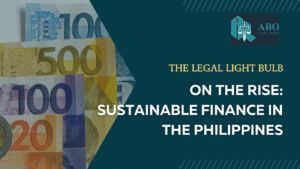Signed into law by President Ferdinand Marcos Jr. on May 29, 2025, Republic Act No. 12214 or the Capital Markets Efficiency Promotion Act (CMEPA) was launched with symbolic fanfare at the Philippine Stock Exchange (PSE) in Taguig City on July 1, 2025, the law’s effectivity date. The President, along with economic managers and capital market stakeholders, rang the opening bell and declared the law a milestone in democratizing investment access and strengthening the country’s financial foundations. Designed not just to tweak tax rates, but to simplify taxation, reduce friction costs, and align the Philippines with its regional peers, economists, lawmakers, and financial intuitions hailed RA No 12214 as a long-overdue reform.
Before the passage of RA No. 12214, the Philippine capital market was burdened with confusing tax rules that often discouraged participation. For instance, investors in stocks of publicly listed corporations faced a 0.6% stock transaction tax (STT) which is one of the highest in the region when compared to other ASEAN countries like Singapore, which imposes 0% STT, and Malaysia, Indonesia, Thailand, and Vietnam, which impose only .1%. This made stocks trading expensive and deterred both local and foreign investors from actively participating in the market. Meanwhile, capital gains tax (CGT) on sale or disposition of shares of corporations not listed in the PSE were inconsistent. Domestic shares were subject to a 15% CGT, while gains from foreign shares could be taxed as regular income, potentially up to 35%. The result was a system that was complex and unattractive.
Documentary stamp taxes (DST) added another layer of friction. Issuing new shares came with a DST of Two pesos (P2.00) on each Two hundred pesos (P200), or fractional part thereof, of the par value, of such shares of stock or simply 1% and pooled investment vehicles like mutual funds and unit investment trust funds (UITFs) were not defined in the tax code resulting to inconsistent interpretations and uncertainty in compliance. Even interest income was taxed at varying rates depending on the instrument and its maturity. Interest from long-term deposits, those with maturity date of over 5 years, was exempted from tax, while those from foreign currency deposits earned by residents were taxed at 15%. Other interest income were taxed at 20% or even higher for nonresident alien not engaged in business or trade in the Philippines. This created opportunities for tax arbitrage and confusion for investors.
RA No. 12214 changed all that. It slashed the STT to 0.1%, aligning the Philippines with its ASEAN neighbors and making the market more attractive to both institutional and retail investors. It further harmonized the CGT on unlisted shares, applying a flat 15% rate regardless of whether the shares are from domestic or foreign corporation. This simplifies compliance and levels the playing field for cross-border investments. Moreover, the DST for issuing new shares were lowered to 75% of the 1% of the par value, making it more affordable for companies to raise funds through equity issuance.
Perhaps most significantly, the law clarified and streamlined the tax treatment of pooled investment vehicles. Starting July 1, 2025, Mutual funds and UITFs are exempt from DST on both issuance and redemption, removing a key barrier to entry for small investors. Furthermore, RA No. 12214 standardized the final tax on interest income at 20% for residents and 25% for nonresidents, eliminating the fragmented rates that previously complicated investment decisions.
Still, not all proposed provisions made it into the final version. President Marcos exercised his line-item veto power to strike out certain measures deemed fiscally risky or inconsistent with broader policy goals. These included: the proposed removal of the tax exemption on income from Foreign Currency Deposit Units (FCDUs) for nonresidents, which was retained to protect dollar inflows and investor confidence; a proposed DST on bettors of PCSO games, vetoed to preserve the neutrality of indirect taxes; and the repeal of tax exemptions for PHILGUARANTEE, which was also vetoed to maintain support for affordable housing finance.
Despite these vetoes, Department of Finance (DOF) projected that RA No. 12214 will generate over ₱25 billion in net revenue from 2025 to 2030, while also fostering long-term capital formation and financial inclusion. Secretary of Finance, Ralph G. Recto said, “By making investment channels clearer, more affordable, and more accessible, especially for small investors, we open the door to greater financial inclusion for our people.”
Retail investors, overseas Filipino workers (OFW), and small savers, many of whom were previously sidelined, now have a clearer and more affordable path to investing. At the same time, the reforms enhance the Philippines’ competitiveness in the region, making it a more attractive destination for foreign capital.
According to Special Assistant to the President for Investment and Economic Affairs Frederick D. Go, “The passage of CMEPA sends a clear message to both domestic and global investors that the Philippines is committed to building deeper, more efficient capital markets. This reform is expected to boost and strengthen liquidity, trading activity, capital formation, and contribute to broader economic growth.”
With more participants, greater liquidity, and a more transparent tax regime, the Philippine capital market is poised to become a more dynamic engine of economic growth.
For businesses, investors, and institutions navigating this new regulatory landscape, expert legal guidance is essential. Abo and Peñaranda Law Firm offers comprehensive legal and tax advisory services tailored to the implications of RA 12214. Whether you’re structuring investments, managing compliance, or exploring new capital-raising strategies, our team is equipped to help you adapt with clarity, confidence, and strategic foresight.
Let us help you turn reform into opportunity. Reach out to Abo and Peñaranda Law Firm today.





